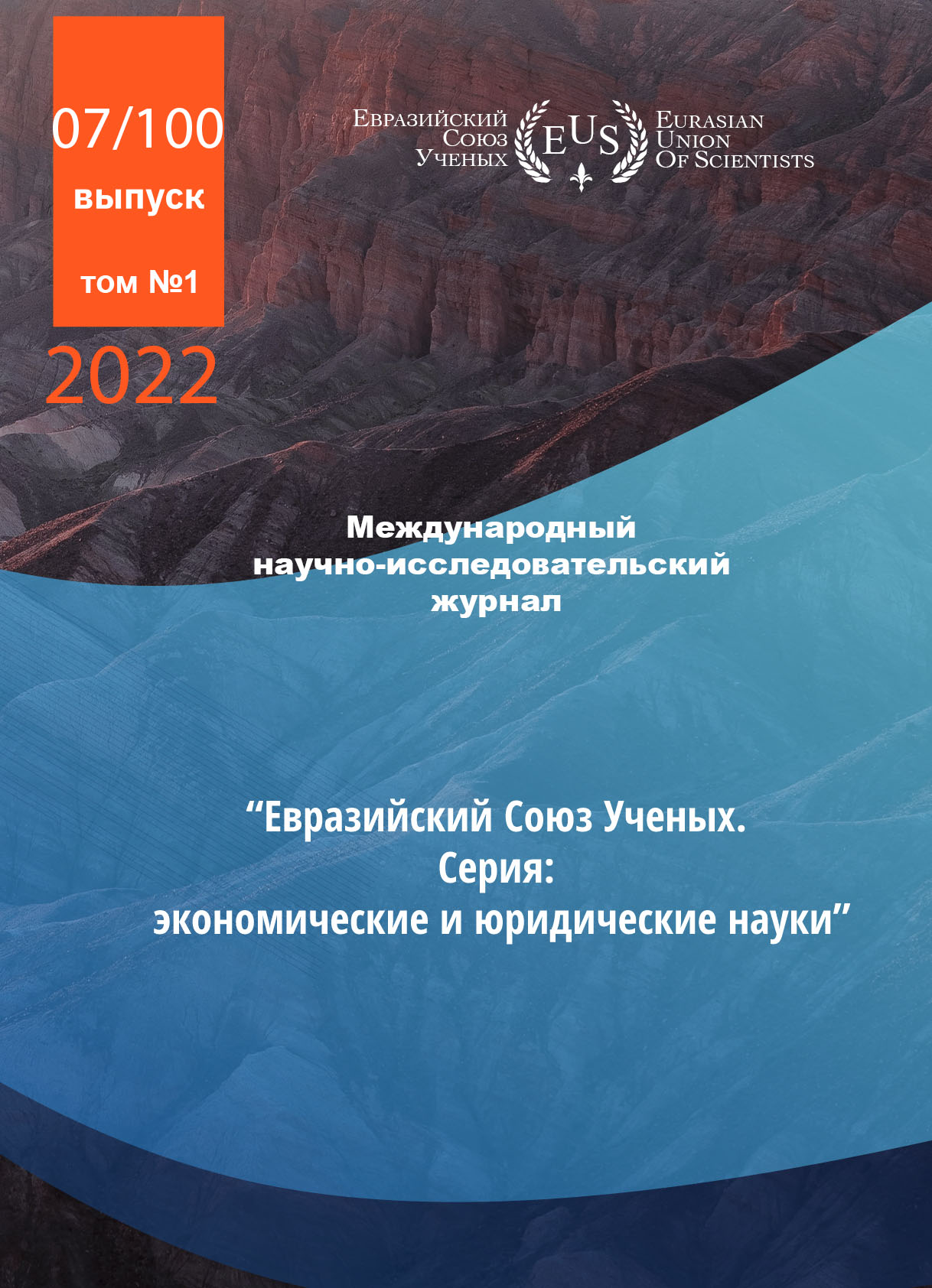FORMATION OF A COMPLEX OF OPTIMIZATION MODELS OF DISTRIBUTION OF FUNCTIONAL LOAD BETWEEN THE SUBJECTS OF URBAN AGGLOMERATION
Abstract
The development of economic and mathematical methods for distributing the functional load between the
subjects of the urban agglomeration will contribute to the solution of a large number of management problems that
arise in the development of strategic plans, targeted complex programs and projects, as well as the creation of
mechanisms for the interaction of territorial entities that are part of the agglomeration. The article substantiates the
relevance of the development of a set of models designed to solve the problems of distribution of the functional
load in the territory of the urban agglomeration. The problems and features of the formation of global criteria for
multi-criteria of multi-criteria of tasks that are part of the complex are considered. The composition of the input
information is given and recommendations for the formation of an array of input data are given.
References
2. Ljapunova G.P. Jekonomiko-matematicheskaja model' raspredelenija funkcij mezhdu territorial'nymi obrazovanijami gorodskoj aglomeracii. // «Vestnik obrazovanija i razvitija nauki RAEN», № 3. S. 34-41.
3. Ljapunova G.P. Teoretiko-igrovaja model' organizacii mezhmunicipal'nogo sotrudnichestva//Jekonomika Severo-Zapada: problemy i perspektivy razvitija.
2020. № 4 (63). S. 112-121. 4. Ljapunova G.P. O transformacii funkcional'noj struktury territorial'nyh obrazovanij gorodskih aglomeracij// Vostochnoevropejskij nauchnyj zhurnal». 2021.1.76#12(76), 2021 chast' 1. S.28-32.
5. Ljapunova G.P., Korabel'nikov V.M. Sistemnaja ocenka jeffektivnosti predprinimatel'skoj dejatel'nosti//VESTNIK INZhJeKONA. SERIJa: JeKONOMIKA. SanktPeterburgskij gosudarstvennyj jekonomicheskij universitet (Sankt-Peterburg). Nomer: 5. God: 2010.S. 122-127.
6. Fedorov V.P., Pahomova O.M., Bulycheva N.V. Zemlja v gorode i problema ee massovoj rynochnoj ocenki. //Monitoring social'nojekonomicheskoj situacii i sostojanija rynka truda. S-Peterburga. 1997 g. №1. c. 32-40.
7. Fedorov V.P., Platonova E.A., Lisenenkov A.I. Model' razmeshhenija ob#ektov obsluzhivanija na territorii goroda // Pervye chtenija pamjati
professora B.L. Ovsievicha «Jekonomikomatematicheskie issledovanija: matematicheskie modeli i informacionnye tehnologii». Materialy Vserossijskoj konferencii 21–23 oktjabrja 2013 goda. – SPb.: Nestor-Istorija. – S. 208–212.
8. Fedorov V.P., Pahomova O.M., Bulycheva N.V. Modelirovanie rynochnoj stoimosti zemel'nogo uchastka metodom massovoj ocenki territorii // Jekonomika Severo-Zapada: problemy i perspektivy razvitija. 2000. № 4. S. 37–42.
CC BY-ND
A work licensed in this way allows the following:
1. The freedom to use and perform the work: The licensee must be allowed to make any use, private or public, of the work.
2. The freedom to study the work and apply the information: The licensee must be allowed to examine the work and to use the knowledge gained from the work in any way. The license may not, for example, restrict "reverse engineering."
2. The freedom to redistribute copies: Copies may be sold, swapped or given away for free, in the same form as the original.







